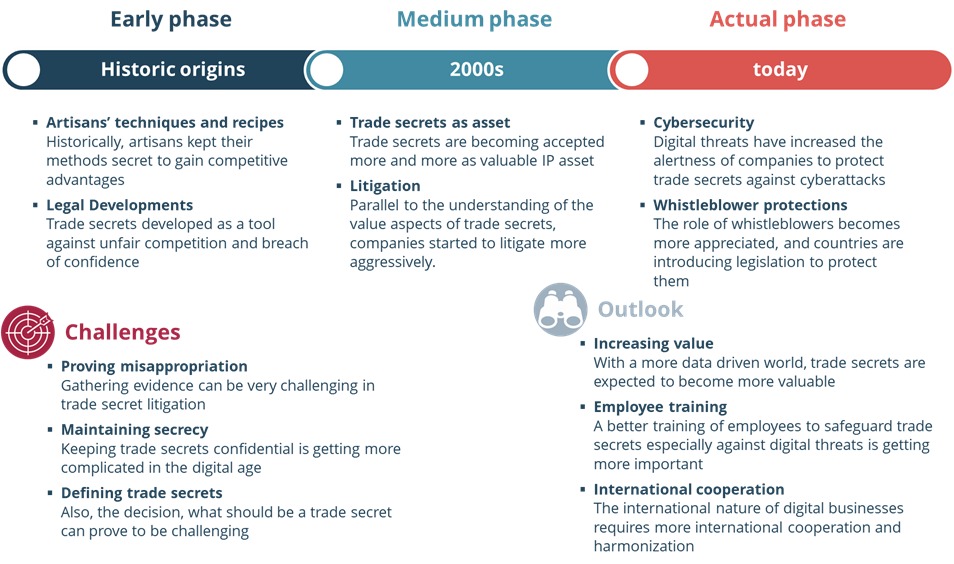Trade secrets are confidential business information that provide a competitive advantage. Unlike patents, they don’t require registration or disclosure, making them attractive for protecting sensitive information like formulas, processes, and customer lists.
However, their protection relies on reasonable efforts to maintain secrecy, including non-disclosure agreements and restricted access. Legal remedies for misappropriation include injunctions, damages, and criminal penalties in some cases.
Recent discussions focus on balancing trade secret👉 Protects confidential business info for competitive advantage. protection with innovation👉 Practical application of new ideas to create value. and competition👉 Rivalry between entities striving for a shared goal or limited resource.. Concerns arise over potential abuse, such as overreaching non-compete clauses and hindering employee mobility. There’s a growing interest in standardizing trade secret protection globally.
Additionally, the rise of digital information and cyber threats raises new challenges in safeguarding trade secrets. Companies increasingly invest in cybersecurity measures and employee training to protect their valuable confidential information.






